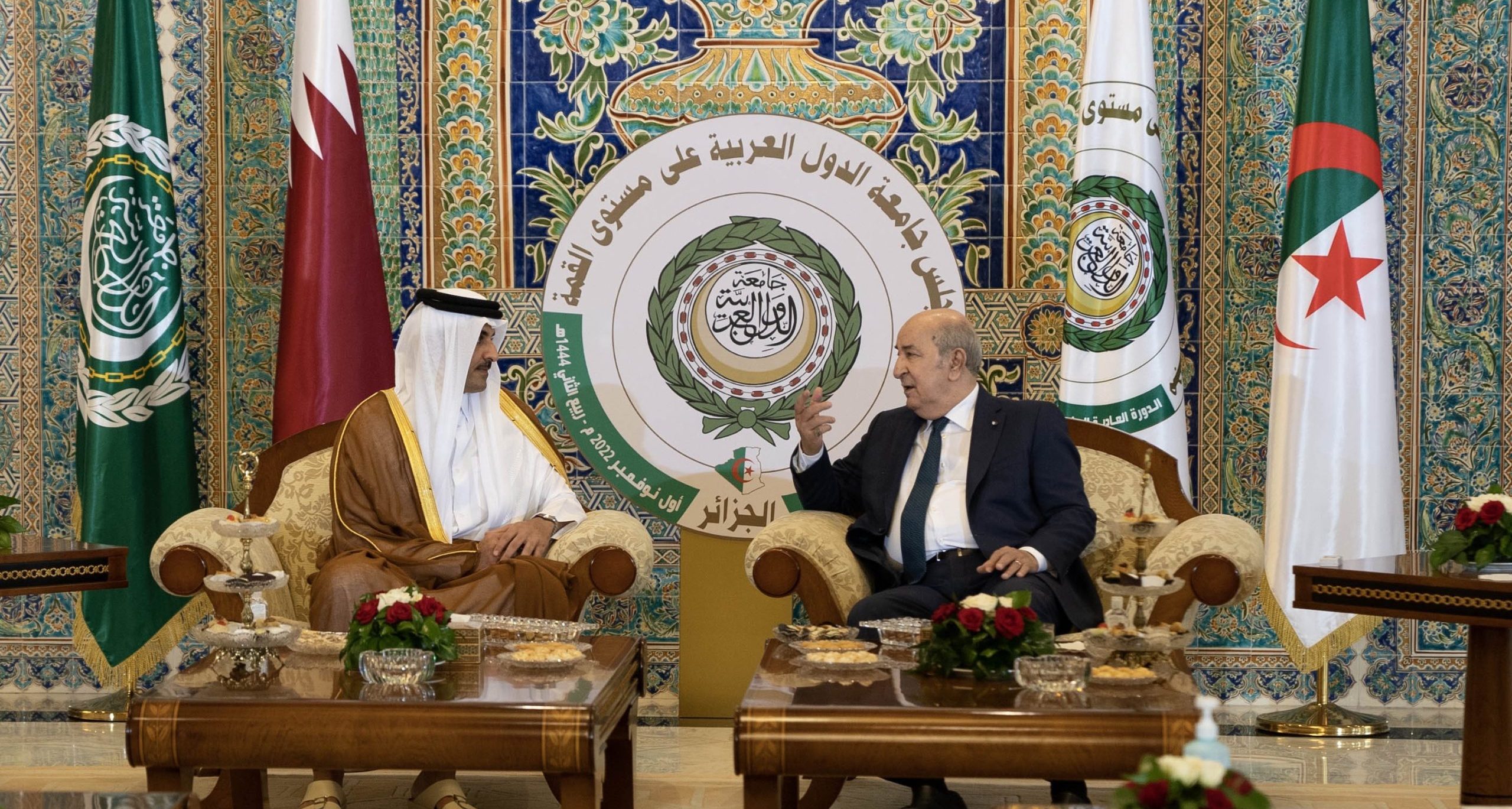Several leaders from the region will not be attending the summit.
Qatar’s Amir Sheikh Tamim bin Hamad Al Thani landed in Algeria on Tuesday for the Arab League summit, which gathers leaders from the bloc for a meeting to discuss top regional issues.
The high-profile summit coincides with the anniversary of the Algerian War of Independence against French colonialism, widely seen as a symbolic move.
“On the anniversary of its Revolution Day, Algeria is hosting the 31st Arab Summit, where Arab leaders will meet once again in affirmation of joint Arab efforts. Sincerest wishes for progress, prosperity and success to all Arabs,” said Qatar’s Foreign Minister Sheikh Mohammed bin Abdulrahman Al Thani in a tweet.
Algeria’s President Abdelmadjid Tebboune has already met with some of the attending Arab leaders, including Palestinian President Mahmoud Abbas and Iraq’s new president Abdul Latif Rashid.
According to Algerian analysts, Sheikh Tamim is the only leader from the Gulf to attend the summit.
“Reasons vary. But it is safe to assume hanging disagreements on regional dossiers. Expectedly, ongoing strategic shifts weigh heavily on ‘Arabs’ reunification’ agenda,” tweeted Zine Ghebouli, an analyst specialising in Algeria.
Last month, Saudi Crown Prince Mohammed bin Salman cancelled all travel plans based on advice by his doctors. Instead, Saudi Arabia’s Foreign Minister Prince Faisal bin Farhan is said to lead the kingdom’s delegation.
Morocco’s king Mohammed VI is also missing the summit for “regional considerations”, as Ghebouli added in another tweet. Last year, Algeria severed ties with Morocco over what it described as “hostile actions” against it.
Qatar at the time expressed its “deep regret” over the severing of ties and called for the need to maintain channels of dialogue to resolve the diplomatic dispute.
“More than ever, lack of trust characterises dynamics between Algiers and Rabat. Signs indicate [the] diplomatic crisis is here to stay, for the foreseeable future,” said Ghebouli.
This year’s summit is set to discuss issues concerning the region, including the ongoing war in Yemen, the occupation of Palestine, Syria’s continuous crisis, Libya’s political turmoil among several others.
The summit is also the first to take place since the Gulf Cooperation Council (GCC) reconciliation in 2021 under the Al-Ula Declaration.
The historic accord ended a four-year rift that divided the region, when Saudi Arabia, the United Arab Emirates, Bahrain and Egypt severed ties with Qatar.
Analysts offered an apparent bleak view of the latest summit, saying they have little hope in its potential outcomes.
“Influential states will dictate the agenda and outcome of this meeting, but unfortunately this will not be in the long-term interests of the Arab world and people,” Dr. Imad Harb, Director of Research and Analysis at the Arab Center Washington DC, told Doha News.







